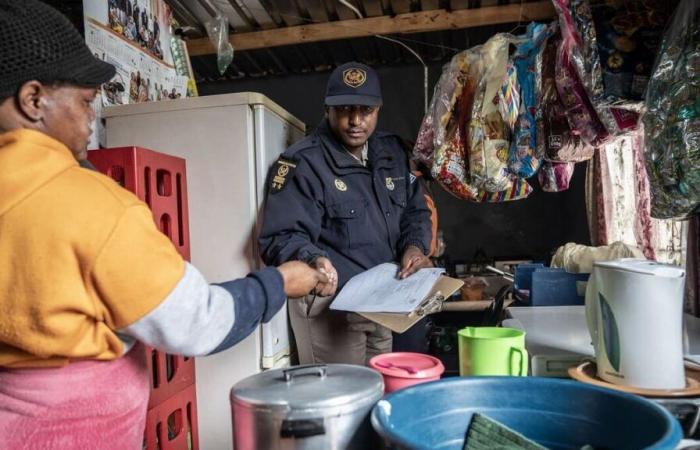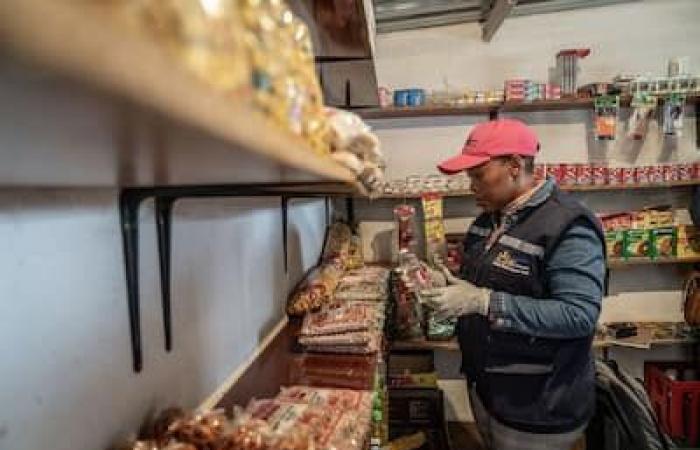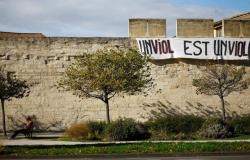The fatal poisoning of 23 children since the start of the year around Johannesburg has fueled yet another anti-migrant wave in South Africa. In the viewfinder: foreigners running spaza shops, these more or less informal grocery stores, which an organization has started to chase out of Soweto.
In Naledi, the epicenter of the health scandal in the huge township, police tape still visible indicates the incriminated shop, now closed, in a street where the ruckus of two neighboring schoolyards echoes.
Six students died last month after eating chips. The autopsy revealed that a pesticide had killed them without a link yet formally established with the grocery store, attacked and looted by residents on the day of the tragedy.
According to the seller on the opposite side, even the owner of the walls left the area for fear of reprisals.
Since then, under pressure from political leaders calling for the choice of increasing controls or banning foreigners from running these businesses, the authorities have increased raids.
Like last week in Olievenhoutbosch, near Pretoria: “We managed to close six stores,” says municipal councilor Sarah Mabotsa. “They sold expired food, beauty products, meat, all in the same place,” she describes.
Photo Shiraaz MOHAMED / AFP
And when the authorities find nothing to complain about, an organization imposes its law. In Naledi, six stores have just changed hands, thanks to Operation Dudula – translate “to push back” into Zulu.
This anti-migrant movement has occupied the screens for more than two years for its raids against immigrants, suspected of theft or drug trafficking, and thrives in a country where xenophobic outbreaks are frequent. Like in 2008 when 62 people lost their lives.
“We chased away the foreigners,” rejoices Maphoka Mohalanwani, 54, new manager of a spaza shop, previously run by Ethiopians in Naledi.
According to her, there is no doubt that the poisonings are “linked to foreigners”. “When children eat chips bought from street vendors, they don’t die,” says this former supermarket cashier.
She became her own boss thanks to one of the fifteen scholarships awarded to South African candidates to replace foreign managers, sometimes perfectly authorized.
“Some stores were closed by the authorities because they did not respect the laws of this country. Some were able to reopen but for those, we returned to ensure that they closed again,” the president of Operation Dudula Zandile Dabula told AFP.
Photo Shiraaz MOHAMED / AFP
“Eliminate the competition”
The spaza saga has monopolized the banners of South African television channels for weeks. Like all subjects making the headlines, it does not escape conspiracy theories.
They divide the street in two, between those convinced that these foreigners – mostly Ethiopians, Somalis or Pakistanis – are deliberately poisoning South Africans and those seeing it as a pretext to take over these businesses.
“We don’t know what’s causing these stories, maybe it’s true, maybe not,” asks Zachariah Salah, a Somali employee at a grocery store in White City, another district of Soweto.
A certainty for him, the replacement movement launched by Operation Dudula “is tragic for us”, understand foreigners.
“Many of these initiatives are aimed at eliminating competition. If we attack a foreigner, no one protests,” observes Loren Landeau, migration researcher at the University of the Witwatersrand, referring to a “purely cynical calculation” and “stories that have been circulating for years.”
“Of course, most of these stores buy the lowest-end products possible. But South African stores sell exactly the same. »
But in White City, the reopening, after several weeks, of the spaza delights customers, who can find almost everything in just a few aisles. From soda to cereals, from frozen foods to household products.
“When it was closed, I had to walk to the shopping centers,” says Nomsa Skosan, 63, relieved to avoid walking several kilometers.
“If the products they sell were as bad as they say,” she asks, “why are those who attack them looting them? »







